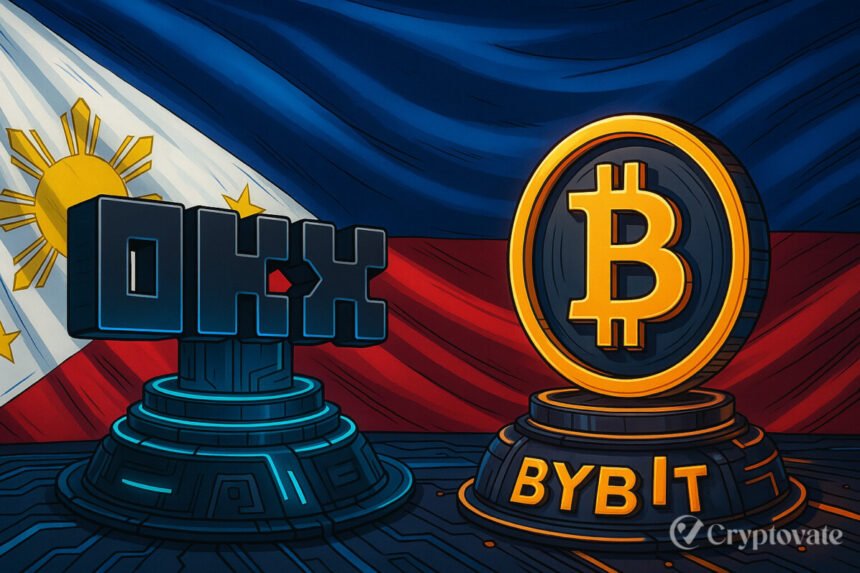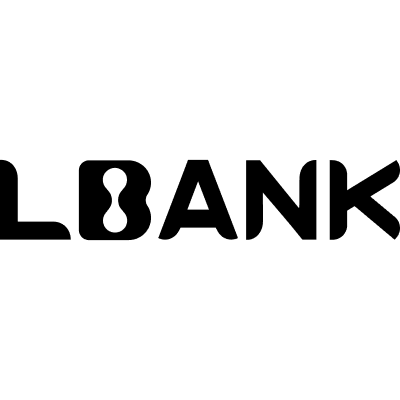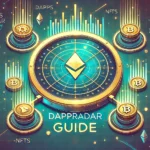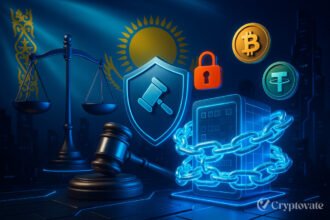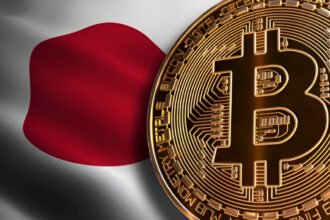– Ad –
| Getting your Trinity Audio player ready... |
In a move that sent shockwaves through the crypto community, the Philippines SEC flags OKX and Bybit, along with eight other major crypto platforms, for operating without proper registration. The SEC crypto advisory 2025, issued on August 1, comes just weeks after the country’s new regulatory framework for Virtual Asset Service Providers (VASPs) took effect on July 5. This advancement underscores the Philippine government’s dedication to implementing tougher cryptocurrency regulations in 2025, focusing on protecting investors and enhancing compliance.
New Rules, New Risks
Under the newly implemented CASP (Crypto Asset Service Provider) guidelines, any platform offering crypto-related services to Filipino users must first secure registration and meet anti-money laundering (AML) standards. The SEC emphasized that platforms operating without licenses expose users to serious risks — including potential loss of funds, fraud, and the lack of legal recourse. Data privacy concerns and weak consumer protections were also cited. The fact that the Philippines SEC flags OKX and Bybit, two widely used exchanges, highlights how seriously the regulator views unauthorized operations — especially as these platforms are among the most prominent unregistered crypto exchanges in the Philippines.
What Action Could Follow
The SEC’s advisory outlines several enforcement measures. These include cease-and-desist orders, blocking access to websites and mobile apps, and filing criminal charges against violators. The regulator is also working with major tech companies like Google, Apple, and Meta to delist these services and limit advertising reach. This move indicates growing concern over OKX regulatory issues and similar violations by other offshore platforms. These actions are more than symbolic — they could drastically impact user access and visibility in the local crypto ecosystem. By targeting known brands, the SEC is making it clear: compliance is not optional.
Also Read: Thailand’s Crypto Crackdown: Bybit, OKX, and More Face Ban from June 28
Guidance for Filipino Crypto Users
For investors and users, the key takeaway is to avoid using unregistered platforms like Bybit, which may now be perceived as effectively banned in the Philippines. Instead, they should ensure that any exchange they interact with is registered and regulated by the SEC. The public is encouraged to consult the official SEC website to verify the registration status of virtual asset service providers. As the digital asset space continues to grow, platforms that comply with the crypto regulation in the Philippines 2025 will have the advantage of long-term trust and user adoption.
The fact that the Philippines SEC flags OKX and Bybit is not a complete ban — but a decisive reminder for both users and service providers to prioritize legal compliance, data protection, and transparency in this evolving financial ecosystem.
FAQs
Is OKX banned in the Philippines?
No, OKX is not officially banned, but it has been flagged by the Philippines SEC for operating without proper registration. Users are advised to avoid using unlicensed platforms to reduce risk.
Can I still use Bybit in the Philippines?
Technically, yes. However, Bybit is also considered unregistered under the country’s new crypto regulations. Using it could expose investors to financial and legal risks, as it operates without SEC oversight.
Why did the Philippines SEC flag these exchanges?
The exchanges were flagged because they are operating in the Philippines without securing registration under the Crypto Asset Service Provider (CASP) framework, which became mandatory on July 5, 2025.
What are the risks of using unregistered crypto platforms?
Investors using unregistered platforms risk losing their funds without any legal recourse. Other risks include fraud, identity theft, and lack of consumer protection or dispute resolution mechanisms.
How can I verify if a crypto platform is SEC-registered in the Philippines?
You can check the official Philippines SEC website for an updated list of registered Virtual Asset Service Providers (VASPs), or contact the SEC directly for verification.


